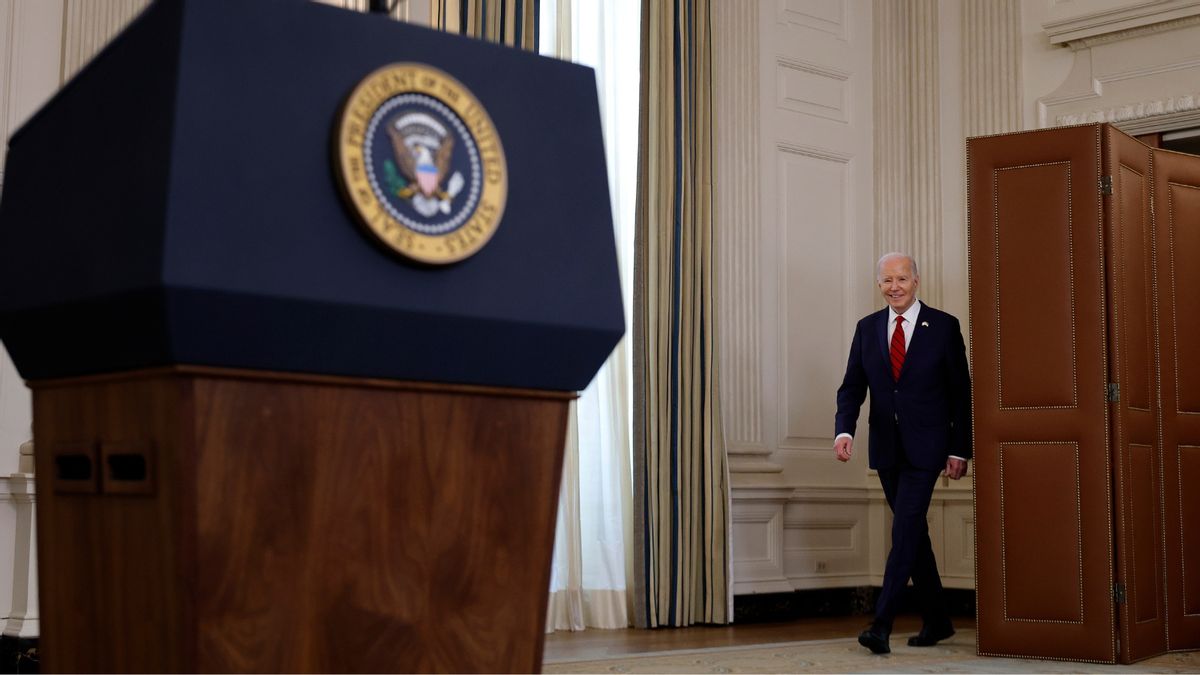On April 24, 2024, U.S. President Joe Biden signed a law that may lead to the ban of TikTok in the country. However ...
It is not an outright ban. Instead, the new legislation will allow TikTok to stay available to U.S. users under conditions that may prove hard for the app's parent company to meet.
On April 24 and April 25, 2024, internet users published posts claiming that U.S. elected officials, chief among them U.S. President Joe Biden, had banned the popular video app TikTok. Many denounced the move as unconstitutional while others asserted that Israel, Zionists or Jews were behind the alleged ban:
This post on X had gained 119,800 views, 3,745 likes and more than 2,000 reshares as of this writing. Several more appeared, making the same claim (take care clicking on these links as some of these posts include videos that show violent images). One of them added that the ban would not go into effect until January 2025. On Meta's website and app Threads, the hashtag TikTokBANNED also took hold.
It is true that Biden on April 24, 2024, signed a law that concerned TikTok. This law may lead to a ban of the phone app on the U.S. market, unless its parent company meets certain conditions. This has led us to rate the claim a mixture of true and false information.
Where It All Started
Contrary to antisemitic rumors that Zionists and Jews were behind this law, the discussions about banning TikTok started long before this latest episode in the decades-long conflict between Israel and its Palestinian neighbors.
In 2019, the U.S. Army banned soldiers from using the app, citing national security concerns. The fear was that TikTok, whose parent company ByteDance is Chinese, could be a vehicle for the Chinese government to acquire data, watch or influence its U.S. users.
Despite the ban, army recruiters kept using the app to reach younger people and were caught doing as much. Florida U.S. Sen. Marco Rubio became involved, calling for army chiefs to enforce the ban. Still, U.S. Army recruitment efforts continued on the app.
In June 2020, the U.S. government announced that the app was under national security review, according to The New York Times. Then-U.S. President Donald Trump threatened to deny the app access to the U.S. market unless ByteDance divested from its U.S. operations, and on Aug. 1, 2020, ByteDance said it would do so, adding that Microsoft or Oracle might be interested in acquiring TikTok in the country.
On Aug. 7, 2020, Trump signed an executive order giving ByteDance 90 days to complete the sale or face a ban. On Aug. 24, ByteDance announced it was filing a lawsuit to challenge the executive order, arguing it wouldn't have time to complete due process and taking exception to the characterization of TikTok as a national security threat.
In June 2021, five months after Biden took over the White House, he signed an executive order that cancelled Trump's, but ordered the national security review to continue. This led him, on Dec. 30, 2022, to sign a law that banned most federal government employees from keeping or downloading TikTok onto agency-owned phones (except for some employees in law enforcement and cybersecurity research).
How the Law Passed
The controversy reached a boiling point in January 2024, when the U.S. Senate held hearings with TikTok CEO Shou Chew, who defended his company, saying it had never given user data to the Chinese government. Here's a clip put together by The Washington Post:
This did nothing to appease U.S. elected officials. A few weeks after the hearings, the U.S. Office of the Director of National Intelligence, which leads the country's 18 intelligence agencies, declassified a document that showed China's government had used TikTok to influence U.S. elections. Congress, meanwhile, continued to seek legislation against the app as a purported arm of Chinese surveillance and propaganda.
The bill Biden signed into law on April 24, 2024, is the result of these efforts. The new law did not ban TikTok outright. Instead, it gave ByteDance one year to sell its stake in its U.S. operations — a plan that had been in the works for four years, according to The Associated Press. Failing to do this would result in a ban. This deadline would be extended if the company responds with a legal challenge, something Chew has vowed to do on on First Amendment (free speech) grounds:
This law comes the week after Apple reported that the Chinese government ordered it to remove WhatsApp, owned by U.S. company Meta, from Apple's Chinese App Store, also citing security concerns.

